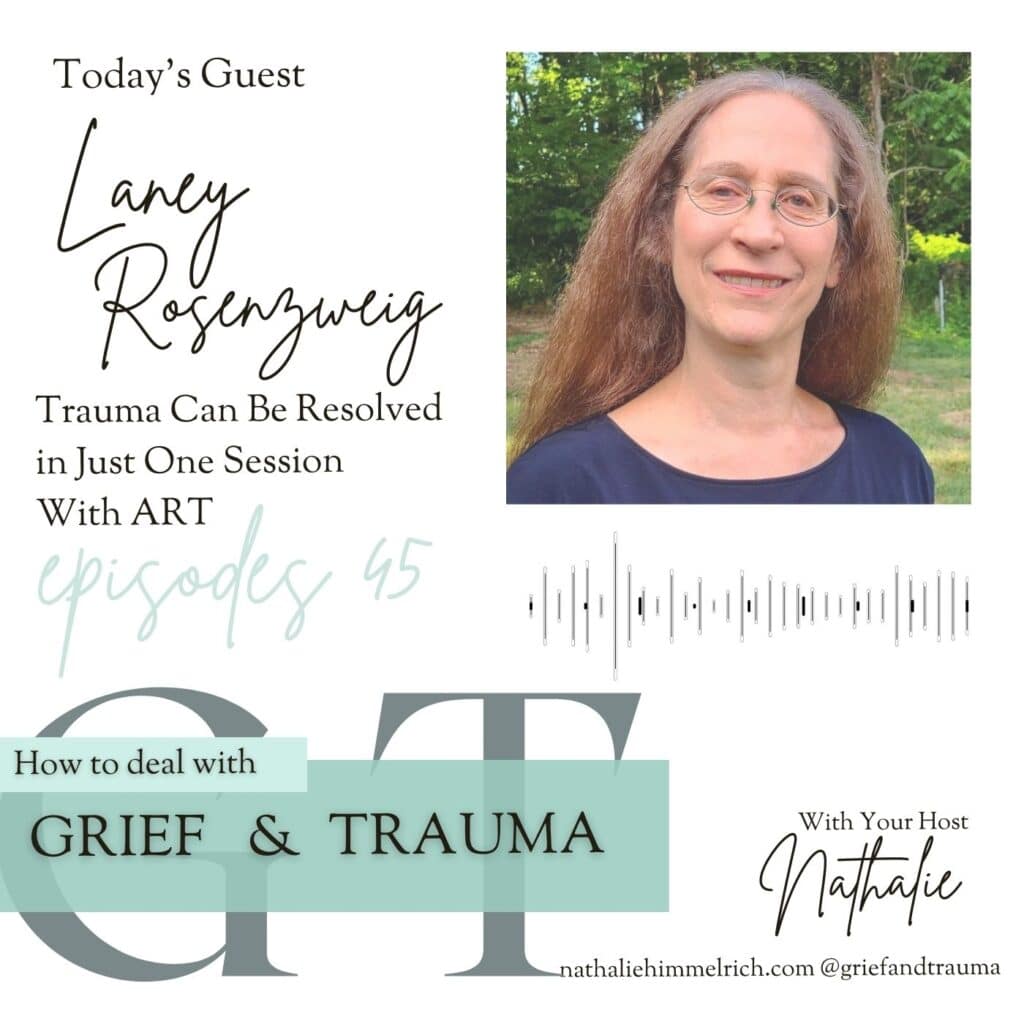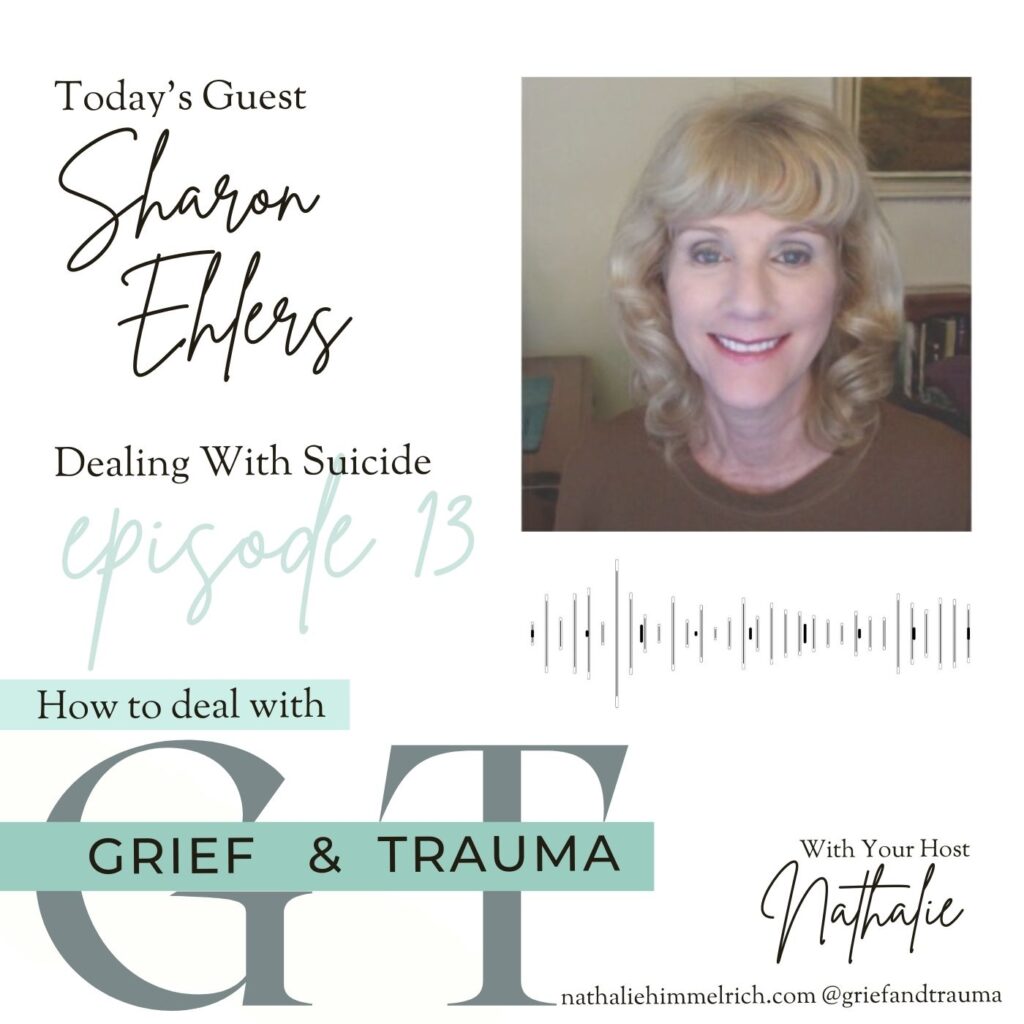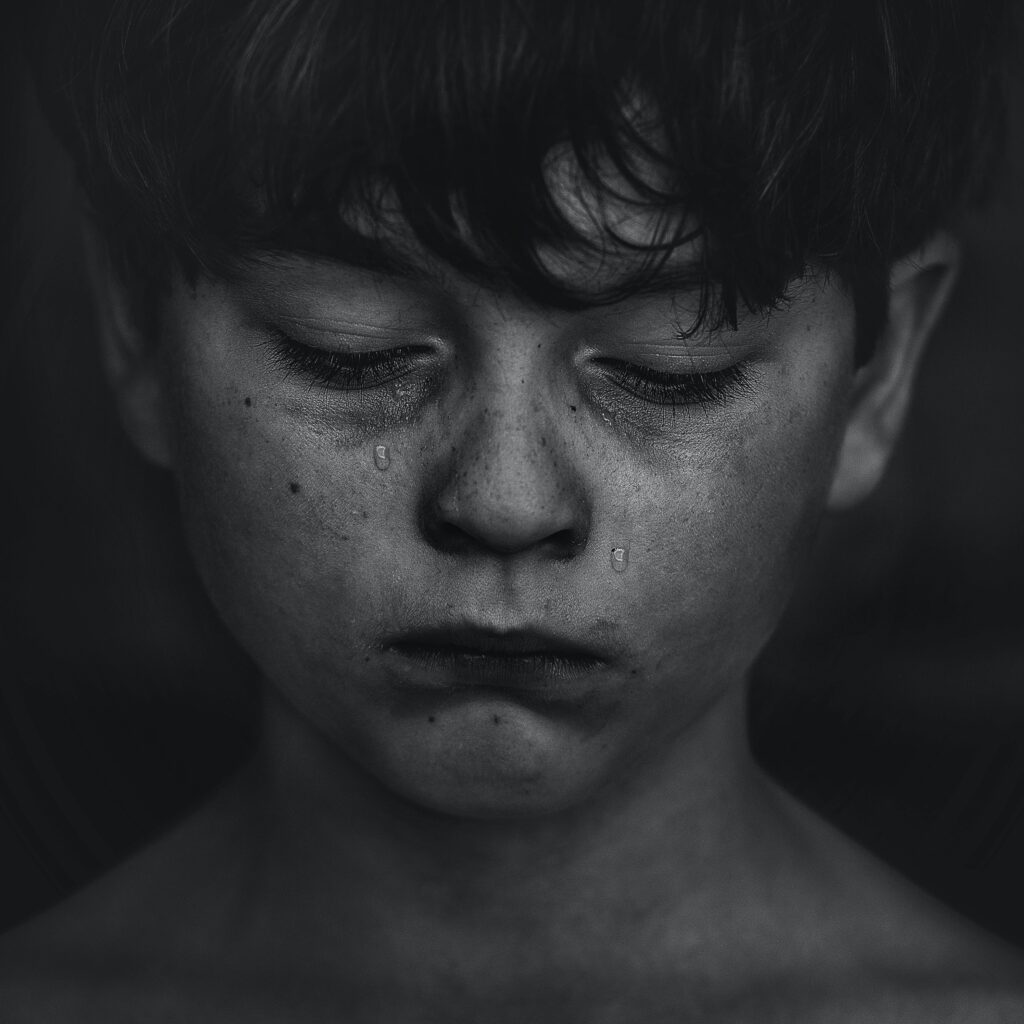HOW TO DEAL WITH GRIEF AND TRAUMA is completely self, funded, produced, and edited by me, Nathalie Himmelrich.
Consider making a small donation to support the Podcast: bit.ly/SupportGTPodcast. Thank you!
For more information, please visit Nathalie’s website, join the podcast’s Instagram page, and subscribe to the newsletter to receive updates on future episodes here.

How Trauma Can Be Resolved in Just One Session? With ART…
The episode with Laney Rosenzweig, founder of Accelerated Resolution Therapy ART has been one of those conversations that caught me by surprise. After hearing about Accelerated Resolution Therapy from one of my previous podcast guests, I was interested but after speaking with Laney I was completely intrigued by her experimental spirit which led to the potential of ART to help people heal from many challenges.
ART has been proven useful to treat:
- Post-traumatic stress (PTSD)
- Grief
- Depression
- Phobias
- Anxiety
- Addictions, substance abuse
- Eating disorder
- OCD
- ADHD
About this week’s guest
Laney Rosenzweig is the Developer of Accelerated Resolution Therapy (ART). Developed in 2008, ART is an evidence-based, eye movement therapy that can resolve the symptoms of PTSD and other mental health issues. The research showed that one to five sessions with an average of three resolved the issues studied. Most past trauma can be resolved in only one session. Ongoing problems may take longer due to secondary gains. Her training company, Rosenzweig Center for Rapid Recovery (RCRR), has trained over 8,000 clinicians both in private practice and in numerous clinics. Her book, “Too Good to Be True” is an autobiographical account of her life, how she developed ART, and examples of ART’s healing power.
Laney’s Website: https://erasetraumanow.com
Laney’s TEDx Talk: https://www.youtube.com/watch?v=vP7dx03arxI
ART links: ART Website: http://www.acceleratedresolutiontherapy.com/ | Facebook: https://www.facebook.com/acceleratedresolutiontherapy
Thank you for listening!
HOW TO DEAL WITH GRIEF AND TRAUMA is produced and edited by me, Nathalie Himmelrich. Support the show
Support the show:
- Become a supporter of the show! Starting at $3/month
- Join Facebook Group – Grief and Trauma Support Network
- Download the FREE grief resource eBook
- Book a complimentary Discovery Call
- Leave a review
Follow on socials:





